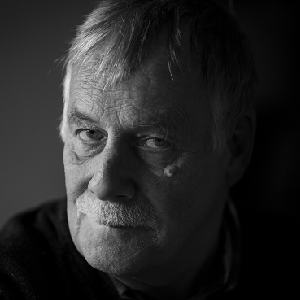In conversation with... Charlie Laidlaw
Hi Charlie! First of all, I would like to congratulate you on the publication of Everyday Magic. Can you please briefly tell us what it is about?
A: Like all my books, it came from an idea that had been swirling around in my head for some years. It took lockdown to give me a focus: that all of us, to some extent, were having to reassess our lives and the people and things that were important to us. The book takes some inspiration from Charles Dickens’s A Christmas Carol, as my central character is also taken on a journey to her past and present, and to better see how she could make a new future for herself. It’s poignant, uplifting, humorous and optimistic.
Did you have the plot entirely figured out when you started writing the book or did it take an unexpected turn as the characters grew on the page?
A: No, no book is ever entirely figured out, although I do as much planning as possible. I know from experience that you can waste huge amounts of time and effort by not having a plan to work to. But inspiration only comes in bite-sized chunks and, of course, characters and events never quite work out as you planned them. That’s one of the joys of writing: to have characters who become real people.
Was Everyday Magic your working title? Either way, how did you choose it?
A: No, my working title was A Carole in Winter which more closely reflected A Christmas Carol. As the book developed, it went through a couple of other incarnations before ending up as Everyday Magic. It’s good to have a working title but, for me, that’s never the final title.
If this novel was going to be turned into a film, who would you cast in the role of Carole?
A: I’m not really into the celebrity thing. My second novel, The Space Between Time, is partly a satire on the nonsense that surrounds celebrity. That said, I do understand that big screen names do sell a film to audiences. I suppose Julia Roberts would be one choice, except that my character has short hair and I doubt that she’d like that.
Without giving too much away, can you tell us about a scene in the book that you love or that was particularly difficult to write?
A: I can’t think of any scene in particular. But if you read the book you’ll find, in passing, scenes set in and around Orkney’s Neolithic stone circles. While those facts aren’t rammed down readers’ throats, I had to do enough research to make those scenes authentic. A few simple facts might have taken me hours of research!
Is there anything that didn’t make it into the final version of the book?
A: Strangely, it was the other way around. My previous books were all about writing and writing, and then editing stuff out. This time around, I had a simple premise for the book which I wrote, almost in shorthand. It amounted to some 40,000 words. I then worked up ideas and scenes and characterisation to bring it to completion. It’s actually a good way to write a book because what you’re doing essentially is planning in extreme detail and seeing where gaps lie.
If you are already working on your next writing project, would you mind giving us a little anticipation of what we are to expect?
A: I’m working on a couple of things, but I’m not sure if they’ll go much further. They’re projects I started years ago, and don’t really fit with what I now want to write. But…still thinking!
What are you reading at the moment?
A: The Girl Who Reads on The Metro by Christine Féret-Fleury. I’ve only just started it, but already know I’m in safe hands and will enjoy it.
Due to the popularity of social networking websites, interacting with readers – be it via Twitter, Facebook Instagram etc. – is becoming increasingly important. How do you cope with these new demands on authors and do you think that they somehow disrupt your writing schedule?
A: I know that social media is important, and I know I should do more. But, essentially, I am useless at social media, and don’t do enough of it. It doesn’t therefore disrupt my schedules, although I wish it did!
What one piece of advice would you give to aspiring writers?
A: Keep writing and, above all, keep reading. Books are your greatest teachers. I’m also a creative writing tutor, and that’s the best advice any budding author can be given.
Thank you for your time.



Comments
Post a Comment